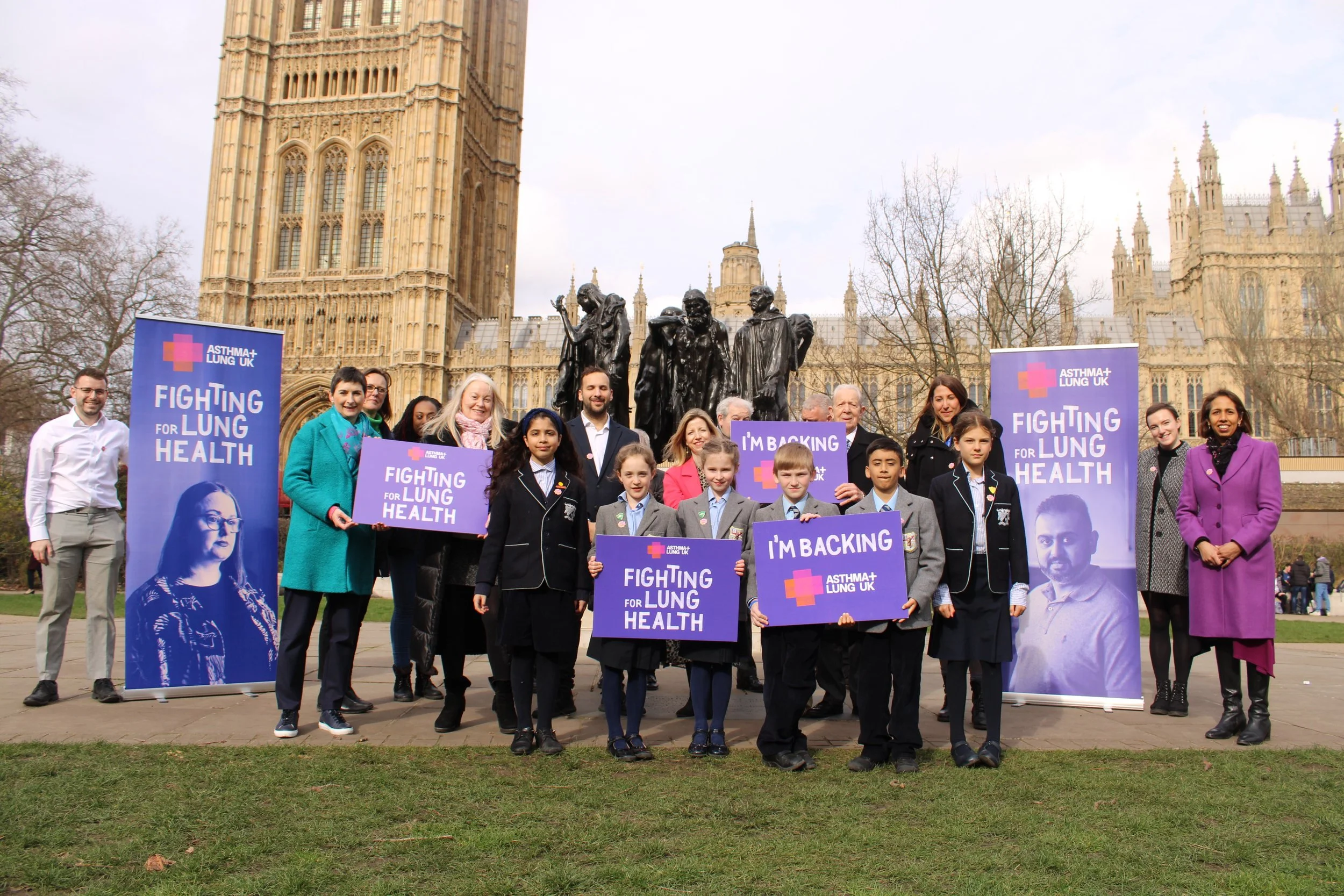International Women’s Day: my career as a woman in research
On International Women’s Day, our Director of Research and Innovation, Dr Sam Walker, reflects on her career as a woman in research and the importance of researching how lung conditions affect women in different ways.
Today marks International Women’s Day and I am proud to work in an organisation that champions the importance of researching how lung conditions affect women in different ways.
It’s a privilege and a pleasure to be the Director of Research and Innovation at Asthma + Lung UK. I don’t often think about my role as a woman in research as I’ve always had the same opportunities as men and haven’t faced discrimination during my career. That said, I have not needed time out to have children which can often disrupt women’s careers and favour the labour market towards men, particularly in more senior roles.
Offering new perspectives, asking different questions
When I do take the time to think about it, like when writing this blog, I realise the importance women have in research. Women can offer different perspectives and views, and may ask different questions and come up with different answers to men. This has been brought home to me recently by some work we have been doing looking at women with asthma. For decades, it’s been recognised but simply just accepted that women have worse asthma than men. They are three times more likely to be admitted to hospital and more likely to die from their asthma than men - but until recently, no one thought to question why that was. It is now women themselves who are questioning this and trying to find the answers.
An omission that endangers women’s lives
In her brilliant book Sex Matters: How male-centric medicine endangers women's health and what we can do about it, Dr Alyson J McGregor tells stories of women having heart attacks being sent home from A&E with ‘indigestion’ because heart attacks present differently in women and the doctors treating them don’t know that, concluding that ‘models of medical research and practice are based on male-centric models that ignore the unique biological and emotional differences between men and women - an omission that endangers women's lives’.
We live in an exciting time when scientific discoveries are being made that can transform and extend lives. Girls in school need to be encouraged into science to take their places in mixed sex research teams to ensure that the research benefits men and women equally.
Galvanising the research community
I am particularly proud of the research projects we have funded dedicated to understanding why women have worse asthma than men and what we can do about that.
So far we have funded six projects in this arena, four of which are led by women. Included in these awards is a Chair award which has established a new Professor in this subject area – Prof Mona Bafadhel at King’s College London – whose research focusses on the effects of the menopause on women living with asthma. This professorship also involves galvanising the respiratory research community to come together to investigate and tackle this issue. In Manchester, Dr Hannah Durrington is investigating the links between asthma, sex hormones, the body clock and shift work. Early results show that women, and not men, are at increased risk of asthma if they are night shift workers. The team are working to understand why this is and work out what we can do to tackle this. Ultimately, this work aims to improve asthma care for women.
Putting women at the centre of research
All of this isn’t to say that we don’t recognise the huge contribution made by the whole community of respiratory researchers from generations gone by. But for too long women have been disadvantaged by, for example, all medical research only using data from men. Moving forward, we need to make sure that women are considered separately – by asking and answering women-specific research questions, listening to women and making sure they have their say – and what better way to do this than putting women at the centre of this work.
We empower people with lung conditions to make changes that can be transformative.
Please donate now to help make sure people with lung conditions can live well this year.









Beki is a PhD student from the West Midlands. She has several health conditions including severe asthma and Ehlers-Danlos syndrome (EDS). EDS is a rare inherited condition that affects connective tissue. Last May, Beki set herself a fundraising challenge to complete 180,000 steps to raise money to mark World Asthma Day and EDS Awareness Month.